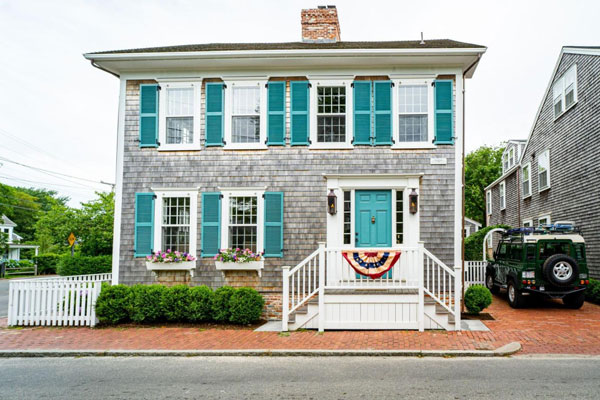A principal residence is a person's main or primary place of residence. It is typically the home where a person lives most of the time and is considered their legal residence for tax and voting purposes.
In the context of real estate, a principal residence can also refer to a property that is eligible for certain tax benefits, such as the ability to exclude the gain from the sale of the property from income taxes under certain conditions.
Benefits of Principal Residence
- Tax benefits:
One of the main advantages of owning a primary house is the potential exemption from capital gains taxes on profits from home sales, provided the homeowner lived in the property for at least two of the five years prior.
- Forced maintenance:
Owning a home can encourage homeowners to maintain and improve their property, increasing the home's value and the surrounding neighborhood.
- Appreciation:
Over time, the value of a home typically increases, allowing homeowners to build wealth through home appreciation.
- Customization:
Owning a home allows homeowners to customize and personalize their living space to suit their needs and preferences.
- Potential appreciation:
The value of a home can appreciate over time, providing homeowners with a financial gain when they sell.
- Stability and safety:
Possessing a permanent residence that you can customize gives you stability and security.
- Potential rental income:
If you have a spare room, basement, or apartment, you can rent it and earn additional income.
Exceptions of Principal Residence
- Military personnel:
Active-duty military personnel can exclude the sale of their principal residence even if they have not met the two-year requirement for ownership and occupancy.
- Unforeseen circumstances:
Owning a home is a great way to pass savings and money to future generations.
- Health Reasons:
If a homeowner is forced to sell their principal residence due to a health condition that makes it impossible for them to continue living there, they may be able to exclude the gain from the sale.
- Multiple residences:
A person may be eligible to deduct the gain on selling their primary dwelling if they own many homes and sell the one they use the most frequently.
- $250,000/$500,000 Limit:
The exclusion is capped at $250,000 for single filers and $500,000 for married filers filing jointly.
- Repeat Use Restrictions:
If a homeowner has used the exclusion in the last two years, they may only be able to use it again after two years have passed since the last sale.

Qualifying for the Principal Residence Exclusion
To qualify for the Principal Residence Exclusion, you must meet the following requirements:
- During the two years before the sale, the taxpayer cannot have excluded the gain from selling another house.
- The type of residence must be a single-family home, condominium, cooperative apartment, mobile home, or houseboat.
- The payer must be an American citizen or lawful permanent resident.
- The taxpayer must not have claimed the foreign housing exclusion or the foreign housing deduction concerning the property.
- Either 10% of the days in a year that the property was rented at fair rental value or, if less, 14 days annually. The taxpayer's use of the property for a rental or commercial venture cannot exceed it.
Other Ways to Reduce or Minimize Capital Gains Tax
Here are some strategies for lowering or evading capital gains tax:
- Hold the asset for a minimum of a year:
Holding an asset for a minimum of one year is known as a "long-term hold." This strategy is often used in investing, particularly with stocks or other securities, as it allows the investor to benefit from long-term asset value growth. Additionally, long-term holds can also qualify for favorable tax treatment.
- Capital losses can counter capital gains:
Capital gains from other investments can be mitigated by using capital losses from those investments. Lowering or eliminating your capital gains tax liability.
- Take advantage of tax-advantaged accounts:
Tax advantages apply to some investment accounts, including 401(k)s and IRAs. You won't have to pay capital gains tax on investments.
- Make a charitable donation of appreciated securities:
Instead of selling appreciated securities and paying capital gains tax, you can donate them to a qualified charity. It allows you to claim a charitable deduction for the fair market value of securities while avoiding capital gains tax.
- Think of a 1031 exchange:
You can sell a property and postpone paying taxes on the gain by using a 1031 exchange if you decide to buy a "like-kind" property with the money. It can only be used for investment or commercial property, not for private property.
It's essential to consult a tax professional to understand how these strategies may apply to your situation and whether they would benefit you.

Conclusion
In summary, a principal residence is a person's primary home, where they live and reside most of the time. It is the place where a person has the most substantial emotional and personal ties and where they consider it to be their true home.
The tax benefits of owning a principal residence include excluding capital gains from the sale of a home from income taxes, tax-deductible mortgage interest, and tax-deductible property taxes. It's important to note that a person can only have one principal residence at a time, and self-employed people may be able to deduct home office expenses.
FAQs
- What are the tax implications of selling a principal residence?
A: Suppose you have lived in your home for at least two of the five years preceding the sale. You may be eligible for the capital gains exclusion on the sale of your principal residence.
- Is it legal for me to have more than one primary residence?
A: No, you can only have one primary residence at a time. The IRS determines your primary residence based on several factors, including where you spend most of your time, where you are registered as a voter, and where you file your taxes.
- How is a taxpayer's principal residence determined?
A: A person's principal residence for tax purposes is usually determined by the place where they live most of the time.
- How Do You Verify Your Principal Residence?
A: There are several ways to verify your principal residence, including providing documentation, such as a mortgage statement or property tax bill, utility bills, a driver's license or state ID, etc.
- What Does the 2-Out-of-5 Rule Mean?
A: The two-out-of-five-year Rule is a guideline in the United States. This Rule applies when an asset has been held for over two of the last five years. If sold, it is considered a long-term asset and eligible for long-term capital gains taxation.



